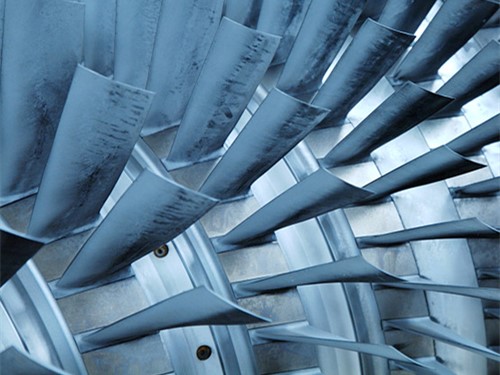What are high temp alloys?
High temp alloy is the alloy based on the element of Fe, Ni and Co, a kind of metal material that can work for a long time under the action of high temperature above 600℃ and certain stress; It has good high-temperature strength, oxidation resistance, corrosion resistance, fatigue performance, fracture toughness and other comprehensive properties. High-temperature alloy is single Austenite structure and has good stability and reliability at various temperatures. Based on the above performance characteristics and the high content alloy, also known as “superalloy”, widely used in aviation, aerospace, petroleum, chemical, an important material for ships.

Classification of high temp alloys
Superalloy materials can be classified according to the following three ways: matrix element type, alloy strengthening type, material forming mode.
According to the matrix element, it is divided into Fe-based, Ni-based, Co-based superalloys. The service temperature of Fe-base superalloy can only reach 750~780℃ generally. For the heat-resistant parts used at a higher temperature, nickel-based and refractory metal-based alloys are adopted. Ni-based high temp alloy occupies a special important position in the whole superalloy field. It is widely used in the manufacture of aviation jet engines and the hottest end parts of various industrial gas turbines.
By matrix element type
- Fe-Ni-Cr/ Fe-Cr-Mn high temp alloy
Iron-based superalloy can also be called heat-resistant alloy steel, that adding a small amount of Ni Cr and other alloy elements on the basis of Fe. Heat-resisting alloy steel can be divided into Martensite, Austenite, Pearlite and Ferrite heat-resisting steel according to its normalizing requirements.
- Nickel-based high temp alloy
The nickel-based superalloy contains 50% or more nickel, and the solid solution and aging treatment can greatly increase the creep resistance and compressive and yield strength. At present, the application range of nickel-based superalloy is far more than that of iron base and cobalt based superalloy. The turbine blades and combustion Chambers of many turbine engines and even turbochargers are made of nickel-based alloys.
- Co-based high temp alloy
A cobalt-based superalloy is about 60% cobalt-based alloy, and the addition of Cr, Ni and other elements improves its heat resistance. Although this kind of superalloy has better heat resistance, the cobalt production ratio is less, so it is difficult to process. It is usually used for parts under high-temperature conditions (600 ~ 1 000℃) and high temperature under extreme complex stress for a long time, such as the working blade of aero engine, turbine disc, hot end parts of the combustor and aero engine. In order to obtain better heat resistance, elements such as W, Mo, Ti, Al and Co should be added in preparation under general conditions to ensure their superior thermal and fatigue resistance.
By alloy reinforced type
According to the type of alloy strengthening, superalloy can be divided into solid solution strengthening superalloy and aging precipitation strengthening the alloy.
- Solid solution enhanced superalloy
Solid solution enhanced superalloy means that some alloy elements are added to iron, nickel or cobalt-based superalloy to form single-phase austenite structure. Solute atoms distort the matrix lattice of the solid solution, increasing the slip resistance in the solid solution and strengthening it. Some solute atoms can reduce the delamination energy of the alloy system and increase the dislocations’ decomposition tendency, leading to the difficulty of cross slip.
- Aging precipitation strengthened superalloy
The so-called aging precipitation strengthening is the alloy workpiece after solid solution treatment, cold plastic deformation, in higher temperature or room temperature to maintain its performance of a heat-treatment process. For example, Inconel 718 alloy has a maximum yield strength of 1 000 MPa at 650℃, and the alloy can be made at 950℃.
By material forming method
According to the material forming method, it is divided into casting superalloy (including common casting alloy, single crystal alloy, directional alloy, etc.), deformed superalloy, powder metallurgy superalloy (including common powder metallurgy and oxide dispersion strengthened superalloy).
High temp alloy has been widely used in aerospace and energy fields due to its excellent comprehensive performance and has become an irreplaceable key material for hot end components of aero engine, even its consumption accounts for 40%~60% of the total amount of engines. Take Inconel 718 alloy as an example, it is the most widely used brand mainly used in the bolts, compressors, wheels and oil spinner of turbo-shaft engines as the main parts. In addition, it is also used in casing, ring, afterburner and nozzle. Superheater and resuperheater use high-temperature alloy tubes with good creep resistance and excellent corrosion resistance in the ultra-supercritical power boiler with high parameters for coal electricity. Turbine blades and guide blades for gas plants, steam generators for heat pipes for nuclear power, etc.


